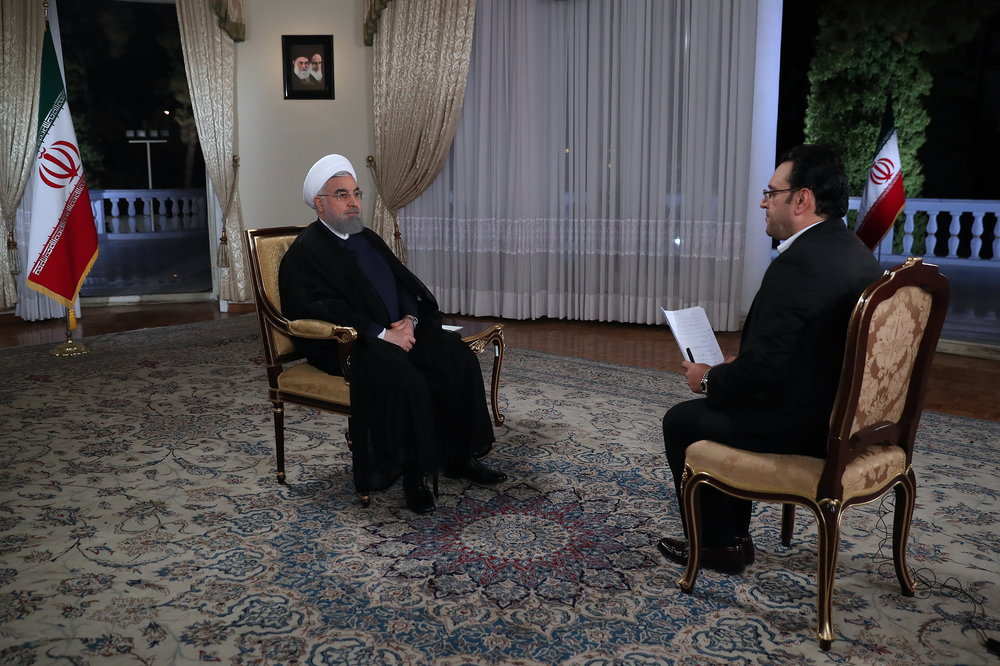It’s unlikely that IAEA surrender to U.S. pressure: Rouhani

TEHRAN – Iranian President Hassan Rouhani said late on Tuesday that the International Atomic Energy Agency is very unlikely to surrender to the U.S. pressure and accept inspection of Iran’s military sites.
The remarks by the president came after Nikki Haley, the U.S. ambassador to the UN, pressed the IAEA last week to seek access to Iranian military bases.
The pressure by the U.S. on the UN atomic body comes as Donald Trump is inventing a pretext to withdraw from the nuclear deal, something which he had promised during his presidential campaigns.
According to the July 2015 nuclear deal, officially called the Joint Comprehensive Plan of Action, Iran agreed to slow down its nuclear activities in exchange for termination of economic and financial sanctions. The deal went into effect on January 16, 2016.
The IAEA, as the UN watchdog body tasked to monitor Iran’s compliance with the terms of the JCPOA, has confirmed six times that Tehran has fully honored its commitments.
Last month, Trump - after a long, drawn-out battle with his top national security officials — reluctantly agreed to certify the deal for the next three months. But according to a recent report in Foreign Policy, the president has assembled a special team of White House aides whose sole task is to figure out a way to claim that Iran is violating the deal. That way he can say it was Iran’s fault the deal fell apart, not his.
“Our relations with the Agency are based on the regulations not the U.S. pressure. The Agency is very unlikely to bow to the U.S. bullying and if that happens, Iran will not bow to bullying and its behavior with the Agency will be within the framework of law,” he said in a televised interview late on Tuesday.
Rouhani went on to say that Iran and the IAEA has always had good cooperation and all the UN body’s reports after the 2015 nuclear deal prove this good cooperation.
Rouhani also said that Iran will never be the first to violate the international deal, however, the country will not stand by and allow the U.S. to breach its own commitments.
He also said that the U.S. is suffering from domestic instabilities and cannot create a commotion against Iran.
“The U.S. was able to create a commotion against Iran with help of the European Union and its allies in the past decades, but today, it is not possible for the U.S. to do so,” the president noted.
“Today, it is the worst situation for the U.S. and the best for Iran. The 28 members to the European Union say that they remain committed to the JCPOA.”
Rouhani also said that international view on Iran has changed and “sanctions have been broken”, predicting that the sanctions will not return.
‘Iran, Saudi Arabia can solve problems through dialogue’
Rouhani also said that problems between Iran and Saudi Arabia can be resolved through dialogue.
Animosity between the two neighboring countries is detrimental to both, he said.
“We have always sought win-win relations, because hostile relations are lose-lose,” he noted.
He urged Saudi Arabia to stop supporting terrorist groups and also interfering in Yemen.
NA/PA
Leave a Comment